
On July 21, 1999, Steve Jobs unveiled a groundbreaking video game at Macworld Expo New York, setting the stage for Apple's potential dominance in the gaming industry. However, fate had a different plan, as Microsoft swooped in to acquire the game's developer, Bungie, turning the tide in favor of the Xbox and leaving Apple to play catch-up in the gaming landscape.
Fast forward to 2023, and Apple finds itself on the brink of a gaming renaissance. Equipped with a formidable lineup of Mac hardware that rivals some of the best PCs, continuous improvements to Apple silicon, and a commitment to gaming-focused software optimizations, the tech giant is poised to reshape its gaming narrative.
While Mac users historically had to turn to separate PCs or consoles for AAA gaming experiences, Apple's recent strides suggest a significant shift. With a market value nearing $3 trillion, Apple is strategically positioning itself to capture the gaming flag. The company emphasizes Mac-specific features, including high-quality displays and speaker systems, coupled with top-notch performance, aiming to redefine the gaming experience on its platform.
As Apple enters this new era, it faces challenges, but armed with powerful technology and a long-term strategy, the company aims to rewrite the history of Mac gaming and establish itself as a formidable player in the industry.
From Historical Struggles to Silicon Triumph
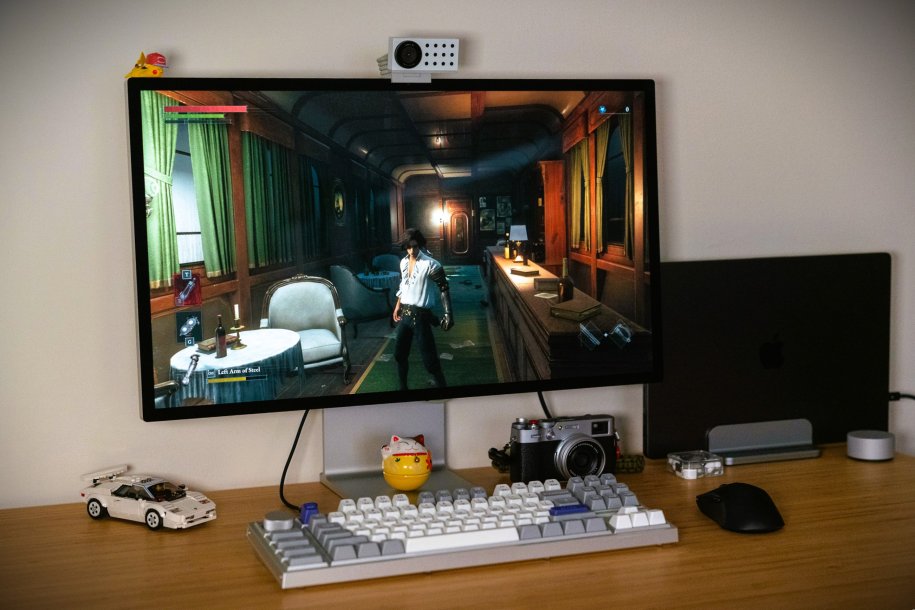
To comprehend the potential paradigm shift in Apple's relationship with gaming on the Mac, a brief history lesson takes us back to 1984, the year the original Macintosh debuted with a mouse—a device that would become synonymous with gaming on desktop computers.
The mouse revolutionized how games were controlled, evolving from simple pointing and clicking to introducing free look with mouse support. This innovation laid the foundation for modern PC gaming, closely tied to the Mac's pioneering contributions. Bungie's Marathon, the first FPS with free look and mouse support, and the subsequent creation of Halo for the Xbox, marked key milestones in this intertwined history.
However, despite its early contributions, Apple faced limitations in the gaming landscape as Mac hardware struggled to keep pace with the demands of evolving 3D games. The Mac's PowerPC CPUs and graphics cards fell behind the rapidly advancing hardware in PCs, resulting in a challenging hardware race that Apple couldn't win.
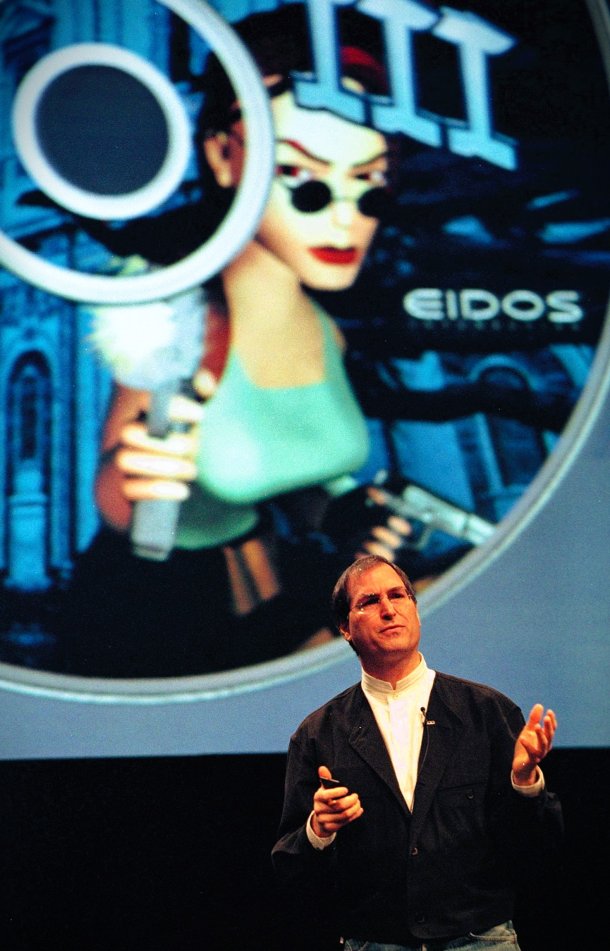
The turning point arrived in 2020 when Apple transitioned to its custom silicon, ushering in a renewed focus on gaming. With Apple silicon's transformative impact, every Mac equipped with these chips, from M1 to M3, demonstrates impressive capabilities for playing AAA games. The M3 family, in particular, supports advanced features like hardware-accelerated ray-tracing and mesh shading.
Gordon Keppel, a Mac product marketing manager, highlights the tens of millions of Apple silicon Macs, emphasizing the monumental CPU and GPU capabilities embedded in these systems. Apple's dedication to GPU upgrades on its silicon is evident in its support for cutting-edge features, previously considered low priority.
Leland Martin, an Apple software marketing manager, underlines the unique strength of Apple silicon, not only in performance but also in providing a unified hardware platform. This platform simplifies game development for Mac and ensures compatibility across various Apple devices, marking a departure from historical struggles with hardware support.
As Apple's gaming renaissance unfolds, the synergy between powerful hardware, performance gains, and a unified platform positions the company to redefine its gaming narrative and establish the Mac as a compelling gaming platform.
The company's journey towards gaming excellence has culminated in a unified hardware platform that extends across iPhone, iPad, and Mac, akin to the console experience offered by PlayStation and Xbox.Gaming was fundamentally part of the Apple silicon design.
Leland Martin, an Apple software marketing manager, underscores the elimination of hardware complexity in gaming development through Apple silicon. The unified platform ensures seamless game transitions across Apple devices, streamlining the process and guaranteeing optimal settings for each platform. This aligns with the console-like approach where specific chipset generations dictate game compatibility, simplifying the user experience.
Doug Brooks from the Mac product marketing team emphasizes the integral role of gaming in Apple silicon's inception. Gaming considerations are embedded in the early planning stages and persist throughout development, mirroring the approach adopted by the latest gaming consoles. The focus extends beyond powerful GPUs to deliver balanced systems that excel in CPU, GPU, and memory performance.
The M3 chip series, introduced at Apple's "Scary Fast" October event, introduces groundbreaking features for Macs. Hardware-accelerated ray tracing and mesh shaders enhance visual realism, but it's Dynamic Caching that could be a game-changer. This innovative feature optimizes GPU memory allocation by delivering precise amounts as needed, resulting in enhanced performance and efficiency.
Dynamic Caching's ability to allocate resources on-demand contributes to better GPU utilization, yielding improved performance and higher frame rates in games. Brooks draws parallels with console experiences, emphasizing the focus on delivering a seamless user experience. Testing indicates that Macs equipped with M3 chips maintain efficient gaming performance on battery power, a notable advantage over some gaming laptops.
The integration of Dynamic Caching across the entire M3 chip family underscores Apple's commitment to democratizing advanced technologies. Brooks highlights the strategic decision to make these technologies available across the entire chip lineup, ensuring a broad customer base can benefit from these advancements.
Unified memory, a core aspect of Apple silicon since the M1 chip, plays a foundational role in gaming on the Mac. Gordon Keppel, a Mac product marketing manager, highlights the advantage of GPU and CPU working from the same memory pool, eliminating data duplication and reducing latency. This unified approach distinguishes Macs from PCs, contributing significantly to the gaming experience.
As Apple continues to push the boundaries of gaming on the Mac, the strategic integration of innovative features into its silicon, along with a unified hardware platform, positions the company to redefine gaming experiences for its users.
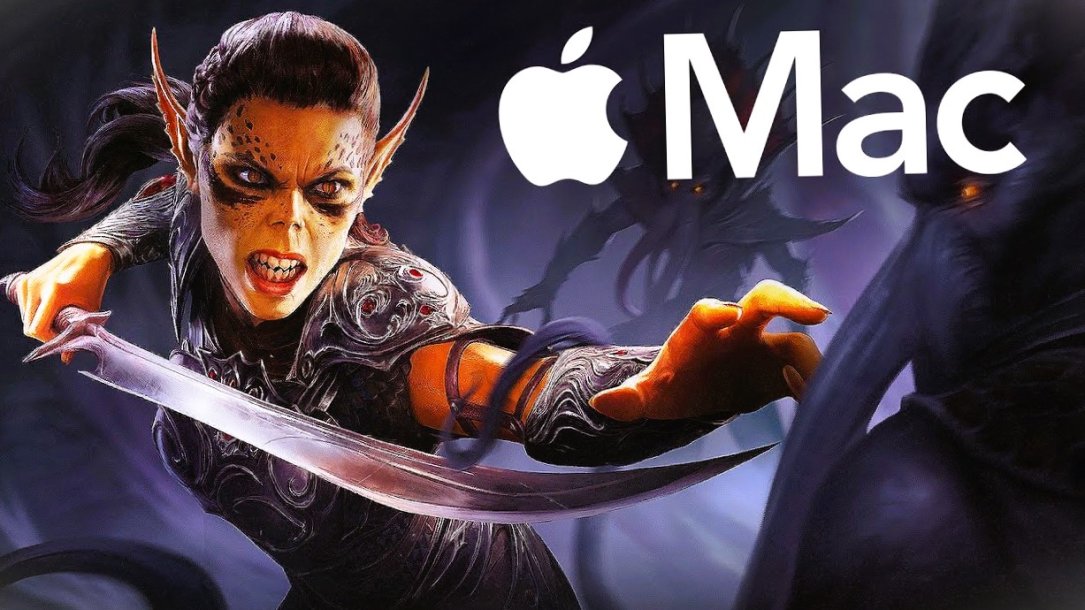
Enhancing Gaming Experience on macOS
Apple's commitment to gaming on its computers has seen significant enhancements, extending beyond hardware improvements. Two major announcements at the Worldwide Developers Conference (WWDC) underscore the company's strides in making Mac gaming more appealing.The first announcement introduced the Game Porting Toolkit, a translation layer designed to simplify the process of bringing Windows games to Mac. While developers can't instantly port their games using the toolkit, it streamlines development by eliminating the need to rewrite code. The toolkit includes an emulation environment and a Metal shader converter. Developers like Kojima Productions and Annapurna Interactive Games have expressed interest and praised the toolkit's utility in saving development time.

Leland Martin, an Apple software marketing manager, emphasizes that the Game Porting Toolkit is not limited to porting old games to Mac. Its effectiveness depends on the game's complexity, but Martin is confident that it can bring virtually any game, regardless of the game engine (Unity or Unreal), to Macs. The toolkit aims to support cross-platform games, aligning with the trend of games spanning various platforms, including PC and consoles.
The Game Porting Toolkit has already demonstrated its success with developers like Bloober Team, who used it to bring titles such as "The Medium" to Mac. This tool opens avenues for developers to efficiently adapt and optimize games for Apple platforms, expanding the gaming ecosystem on Mac computers.

However, challenges remain in the distribution of games on the Mac, particularly through the Mac App Store. Developers have faced hurdles, and some, like Panic, opted not to release their games on the Mac App Store due to perceived policies. While Apple acknowledges ongoing efforts to improve the App Store and emphasizes the freedom for developers to choose their distribution methods, there is room for improvement.
The Mac App Store offers universal purchase and cross-progression features, allowing users to buy a game once and play it on multiple Apple devices. Despite the advantages, Apple's 30% cut of revenue for every paid app sold on the Mac App Store remains a drawback. The article suggests that Apple could provide better incentives, such as leaning into the advantages of universal purchase and cross-progression, to make the Mac App Store more appealing for developers and customers invested in the Apple ecosystem.
Apple's Gaming Aspirations
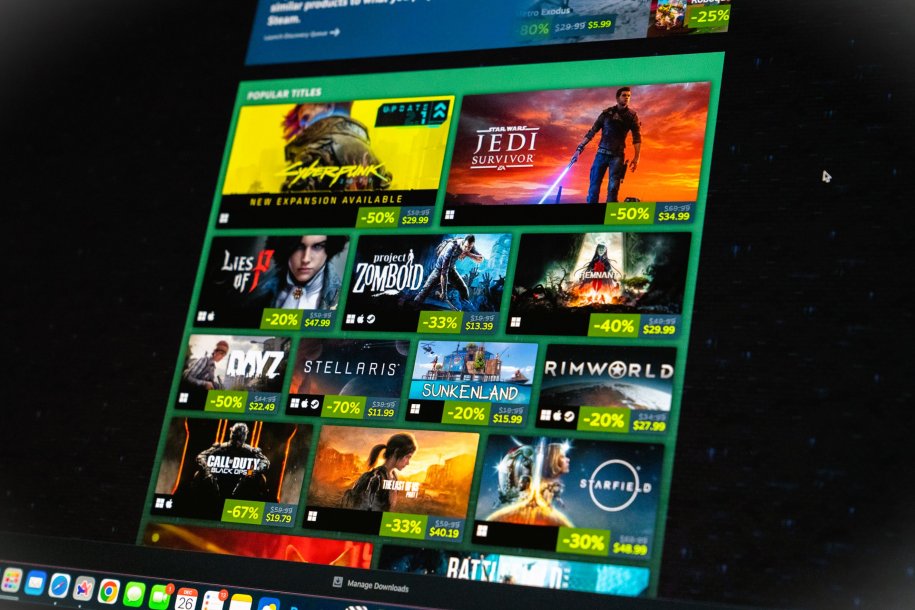
Apple is making significant strides to position the Mac as a viable gaming platform, betting on powerful hardware, developer support, and ongoing software optimizations. While consumers primarily care about game availability, Apple is confident that its proactive efforts will attract publishers and developers to the platform.
The company emphasizes the growing install base of Apple silicon Macs, reaching tens of millions and expanding with devices like the iPhone 15 Pro and 15 Pro Max, and every iPad featuring an M1 chip or later. Apple aims to create a substantial opportunity for gaming on its devices.
While there's no guaranteed timeline for the Mac's evolution into a robust gaming platform, Apple appears committed to a slow and steady approach, focusing on continuous improvement and iteration. Although the company couldn't disclose future plans, including unannounced games or partnerships, it seems genuinely intent on securing simultaneous or near-simultaneous releases of new titles on Mac, aligning with PC and console launches.
Recent examples include Neowiz Games' Lies of P and Baldur's Gate 3, demonstrating Apple's commitment to timely releases. However, the true challenge lies in attracting new hit titles regularly, not just occasional AAA releases. Apple acknowledges the need to engage developers and publishers actively, hinting at the possibility of strategic acquisitions to bolster its gaming ecosystem.
While the road ahead is uncertain, Apple's focus on building a strong foundation for Mac gaming suggests a genuine commitment to making significant strides in the gaming industry.
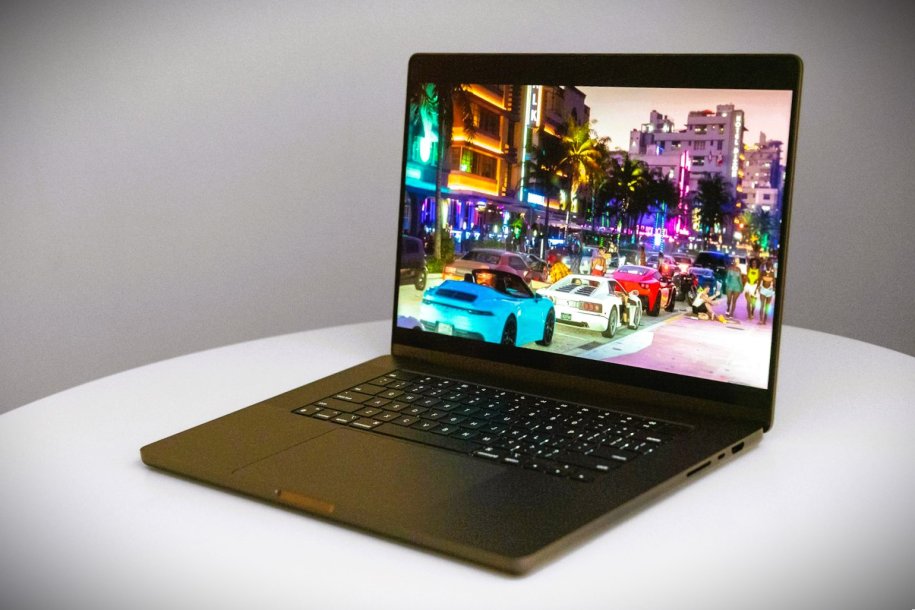
The potential release of GTA VI on the Mac could be a game-changer for Apple, providing a significant edge in the gaming landscape. As the sixth installment of the immensely popular Grand Theft Auto series, the game is expected to release on PS5 and Xbox Series S/X in 2025, with a PC version likely following within 1.5 to 2 years. If this pattern holds, a Mac version could potentially arrive by 2027.
GTA VI's availability on the Mac could signify a major step for Apple in establishing itself as a prominent gaming platform. The gaming industry is projected to reach $389.70 billion by 2028, making it a lucrative market for Apple to tap into. If the company succeeds in securing GTA VI for the Mac, it could mark a pivotal moment in its efforts to become a competitive player in the gaming sector.
Apple's commitment to innovation and the continuous improvement of its hardware and software suggests a strategic approach to becoming a significant force in gaming. The release of high-profile titles like GTA VI on the Mac would not only enhance the platform's credibility but also attract a broader audience of gamers. The coming decade could be a critical period for Apple to solidify its position in the gaming industry, leveraging its growing install base of Apple silicon devices and ongoing advancements in gaming-focused features.
